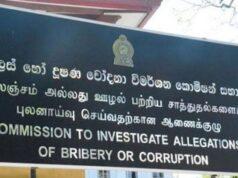Supreme Court Justice Yasantha Kodagoda emphasised that public officials can avoid criminal liability for bribery and corruption if they perform their duties with integrity, accountability, and independence, grounded in the principles of administrative law.
Speaking at the launch of ‘Paripalana Nithiya saha Rajya Sewaya’ (Administration Law and Public Service) authored by Ministry of Plantation Secretary Prabath Chandrakeerthi, Justice Kodagoda stated that the legal approach to anti-corruption and accountability has evolved significantly. “We must acknowledge openly that a new perspective has emerged in tackling bribery and corruption in this era,” he said.
He urged public administrators to be fully aware of how and when they could become liable in cases of corruption and how to prevent such accountability. “Prabath has clearly outlined the circumstances under which a public officer may face criminal liability,” Justice Kodagoda said. “To put it simply, if you carry out your duties honestly, independently, and with proper oversight, based on fundamental administrative principles, I do not see how you could ever be held criminally liable — now or in the future.”
Justice Kodagoda also stressed that effective enforcement of anti-bribery and anti-corruption laws should not lead to undue fear among public servants. “Responding to these laws shouldn’t mean constantly second-guessing decisions, flipping back and forth through documents, and hesitating endlessly. That kind of over-cautious behaviour can paralyse the entire public service,” he noted.
He added that the only true solution is not to retreat into inaction, but rather to perform one’s duties diligently and transparently. “Go back to the basics — document the decisions you make, record the circumstances under which they were made, and the reasons behind them in the official record at the time. That is your protection.”








